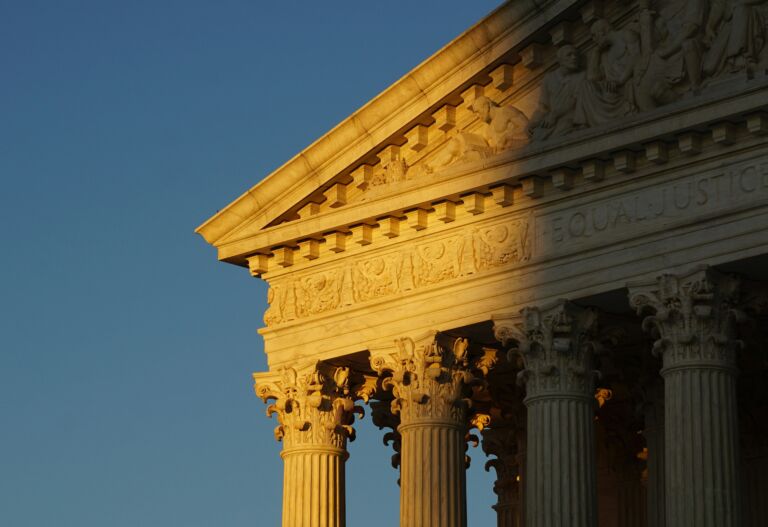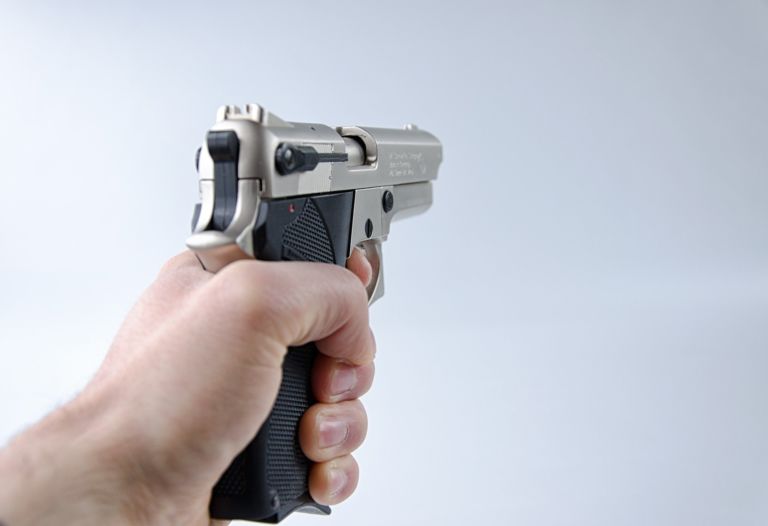Under the threat of the COVID-19 pandemic, many state and local governments around the country have issued “stay at home” orders. These orders make broad exceptions for workers at a range of delineated and nondelineated “essential” businesses and services.
Determining what’s an essential business has caused a fight all over the country over a particular kind of business. The Washington Times reported that many “state and local authorities cited the lack of clear DHS [Department of Homeland Security] guidelines as one reason they were moving to shut down the purchase and, in some cases, manufacturing of firearms.”
Surprisingly, this is the case even North Carolina, despite clear signs from state law covering emergencies as well as legal history that guns and ammunition sales are essential services and that banning them especially during a declared state of emergency is a violation of Second Amendment rights.
Stay-at-home orders from Gov. Roy Cooper and several North Carolina local governments didn’t help. Cooper’s March 27 Executive Order was ambiguous on gun stores in two ways.
The first way is that while the order deliberately avoided listing guns and ammunition retail businesses as essential, the governor’s “Frequently Asked Questions” [FAQ] about the order stated that “Gun stores implementing social distancing requirements for employees and customers as defined in the order may remain open.”
Closer reading showed that the exception wasn’t for gun stores; it was for any business able to “meet Social Distancing Requirements.” The FAQ had the exact same answer for golf courses.
The second way it was ambiguous is that it defers to more stringent local orders. The FAQ put it this way: “To the extent that a local order contains more restrictive requirements, the more restrictive local Order must be followed.” So if a local government restricts gun and ammunition stores, that’s the rule in place there without respect to “Social Distancing Requirements.”
Wake County, Orange County, the City of Durham, and Durham County are among a handful of local governments in North Carolina also to have issued stay-at-home orders. None listed gun and ammunition stores as essential businesses. Like Cooper’s order, however, they deemed any workers listed in DHS’s Cybersecurity and Infrastructure Security Agency (CISA) guidance as essential.
Even so, things aren’t as clear as they should be. Here’s why.
The CISA guidance on essential workers supporting critical infrastructure was originally issued on March 19. It didn’t include gun and ammunition stores. Given the debate raging nationally over whether businesses supporting people’s Second Amendment rights were really essential, however, the CISA guidance was updated on March 28. It now has a section of critical infrastructure for “Law enforcement, public safety, and other first responders” that includes the following:
Workers supporting the operation of firearm or ammunition product manufacturers, retailers, importers, distributors, and shooting ranges.
That should answer the question, shouldn’t it? It does for Cooper’s order because it considers workers to be essential if they work in businesses identified as critical infrastructure in CISA guidance “or any subsequent guidance issued by the U.S. Department of Homeland Security that amends or replaces said guidance.”
The above-mentioned local governments’ orders all reference the CISA guidance issued “March 19, 2020.” Like Cooper’s order, they preceded the guidance update, although Durham County’s was issued the same day as the update. Does that technically mean they don’t have to consider workers at gun and ammunition stores, shooting ranges, etc. essential?
On Monday, March 30, The News & Observers reported that Wake County would update its order, “reversing its stance on whether gun stores can remain open during the coronavirus pandemic.” The paper wrote that “The county will update its order within 24 hours, [Wake County Commissioner Chair Greg] Ford said Monday afternoon, to follow the guidance coming from the federal government.”
But it’s unclear if Durham or Orange counties will conform their orders to the new CISA guidance. Durham Mayor Steve Schewel told the N&O his city considered gun stores “non-essential” and that “they are to cease all operations immediately.”
What does it take to support a fundamental civil right?
Unlike Wake County, those jurisdictions had not received letters from Grass Roots North Carolina and Gun Owners of America (GOA) warning of a lawsuit if their orders failed to list gun stores as essential.
But it really shouldn’t take the threat of a lawsuit for local governments to do the right thing here. After all, the governor and the local governments all recognized that, when it comes to businesses in human services and public health, what’s “essential” should be “broadly construed.” That’s a legal way of saying Let’s assume they’re most likely essential, just to be on the safe side.
Public officials who can see the safe side to their citizens of keeping those businesses operating can’t try to pick nits when it comes to businesses crucial to their citizens’ constitutional right to self defense. (Aside: Both the City of Durham and Durham County’s orders expressly refer to the First Amendment in deeming media services as essential.)
It also shouldn’t take the Trump administration to revise policy guidance. CISA guidance provides another strong indicator of what we already know: gun and ammunition stores provide an essential service in times of emergency.
Banning them is plainly wrong. As U.S. District Court Judge Malcolm Howard wrote in Bateman v. Perdue (2012) against North Carolina emergency declaration statutes that included firearms and ammunition in prohibiting “the possession, transportation, sale, purchase, storage, and use of … dangerous weapons and substances”:
The problem here is that the emergency declaration statutes are not narrowly tailored to serve the government’s interest in public safety. They do not target dangerous individuals or dangerous conduct. Nor do they seek to impose reasonable time, place, and manner restrictions by, for example, imposing a curfew to allow the exercise of Second Amendment rights during circumscribed times.
Rather, the statutes here excessively intrude upon plaintiffs’ Second Amendment rights by effectively banning them (and the public at large) from engaging in conduct that is at the very core of the Second Amendment at a time when the need for self-defense may be at its very greatest.
Banning gun and ammunition sales during a declared emergency isn’t just a violation of fundamental civil rights. It’s a violation of fundamental civil rights when they’re most needed.


